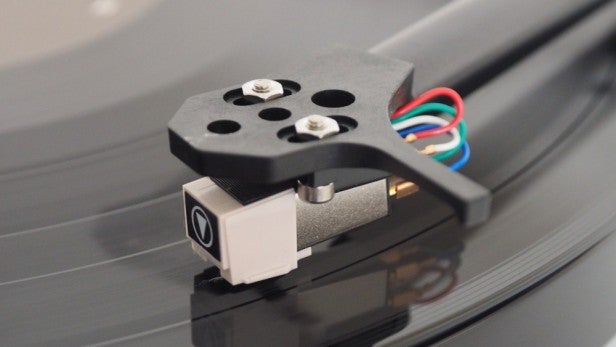Vinyl is about to go ‘HD’ and the circle is complete

The vinyl fans who’ve always sworn that “it just sounds better, man” could soon be able to back up their staunch, yet largely unproven position.
An Australian start-up is introducing a new HD vinyl format, which will offer longer playback, higher quality sound and louder playback.
Rebeat Innovation has secured almost $5 million in investment and wants to get HD vinyl on the shelves by 2019, Pitchfork reports.
The HD vinyl records, which promise 30% more playing time and a 30% increase in amplitude, would still play on existing turntables, the company says.
LPs would offer more faithful sound reproduction, the company says, thanks to more precise pressing techniques, which it says will ensure less audio information is lost.
Related: Best turntable 2018
So what’s the difference in the production methods?
Well firstly the audio file is converted to a 3D topographic map. From there a $600,000 laser is uses to transfer that map to the vinyl stamper.
This will enable the records to be produced without the use of the chemicals traditionally used to make vinyl records.
That fancy new laser has been ordered, with delivery planned for July. The next step is to demonstrate the new stampers at the Making Vinyl conference in October.
Fine tuning will take a further eight months, meaning it’ll be summer 2019 when the first HD vinyl records hit the shelves.
True lossless vinyl?
While the company has pledged the new records will work on existing turntables, it’s unclear whether those quality and amplitude benefits will be felt on the average person’s vinyl set up.
It’s possible people will need a special stylus in order to read all of the audio information offered by this new manufacturing method.
Unlike HD video, there’s no universally defined standard for HD (or hi-res/lossless) audio, but generally, it must have a higher sampling frequency and/or bit depth than a CD recording.
That’s means it’ll need to be higher than 16-bit/44.1kHz.
It’s not clear whether the increase in sound quality meets that definition of high-def audio, or whether this is more of a marketing term designed to simply infer better quality.
Do you think Rebeat’s claims stand up? Drop us a line @TrustedReviews on Twitter.


